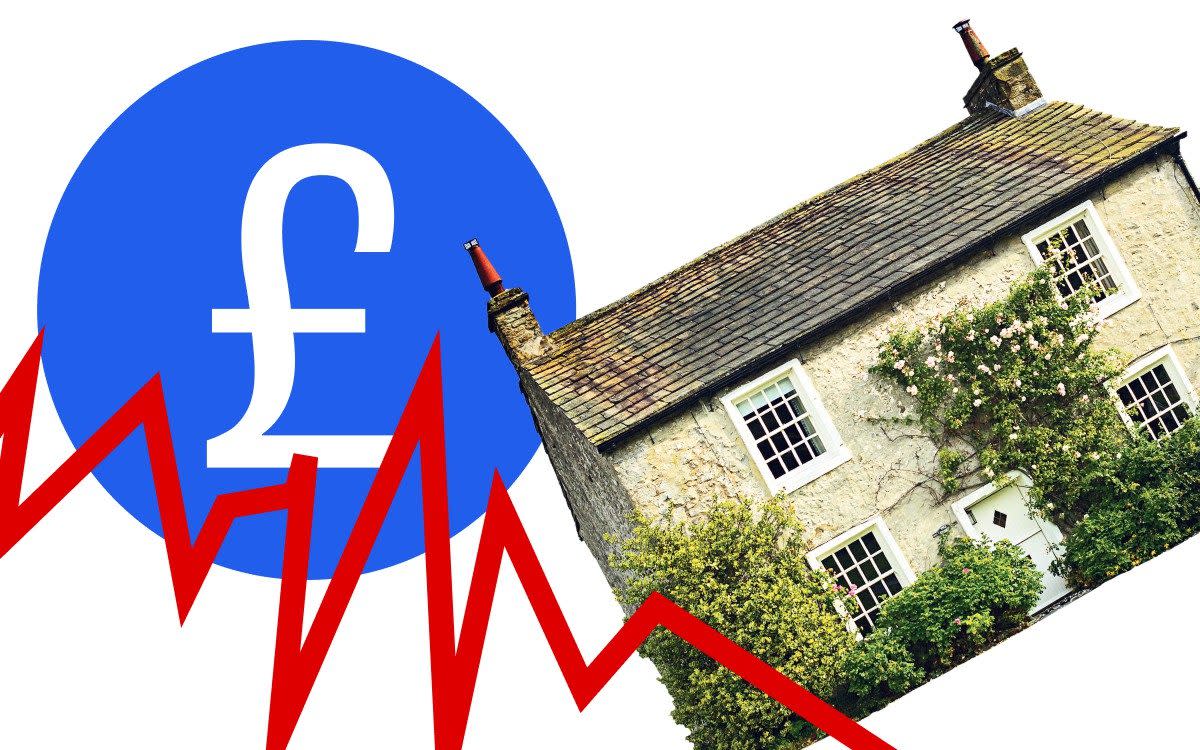Empty homes hits 1 million because owners ‘don’t want to sell up’

The number of unoccupied homes has surged to more than one million because owners don’t want to put their properties up for sale over fears of a looming house price crash, experts have warned.
More than 4pc of all properties in England are unoccupied, an increase of nearly 60,000 homes since 2018, a report from the Local Government Association and the Empty Homes Network shows.
In all, more than 1 million properties were classified as empty in 2022, the report said.
The number of empty homes has increased by 10pc in the last five years, rising across all types and definitions of vacant properties.
Chris Bailey, of Action On Empty Homes, a campaign group, suggested one of the reasons behind the increase is that homeowners were not prepared to put their houses on the market.
He said: “I would say there are factors to do with our ageing population having a very high level of homeownership... so when people inherit them there’s a bit of a tendency, or there has been over recent years, to sit on them.”
Mr Bailey said uncertainty in the housing market was also encouraging people to wait to sell homes.
Despite surprisingly strong house prices recorded last month, it is widely expected that the market could see significant falls over the next few months as soaring mortgage rates take their toll on home buyers.
Bank of England figures show mortgage lending tumbled in September. Just 43,300 mortgages were approved during the month, the lowest number since January, in what traditionally should be a strong month for sales.
There are more than 260,000 long-term empty homes, according to the latest Department of Levelling Up, Housing and Communities data, and 263,000 second homes not in residential use.
In October 2022, there were 676,304 recorded empty homes, up 3.6pc from 2021.
Empty homes are defined as properties which are unoccupied and unfurnished. Properties are considered long-term vacancies if they have been empty for more than six months.
A council tax premium was introduced in 2013 allowing councils to increase tax on homes that have been empty for two years or more by 50pc.
Since 2019 local authorities have been able to double the level of council tax due on long-term empty properties, and since 2021 homes empty for five years can be hit with triple tax. If a property is empty for a decade, council tax can be levied at four times the usual rate.
All but six local authorities reported charging the premium on empty homes in 2023.
Homes which have been repossessed, or where the liable person is in prison or hospital, or where probate has not yet been granted, are not subject to the additional council tax.
Other exemptions are available for students and charities. Councils can also implement “empty dwelling management orders”, enforced sales and compulsory purchase to improve the homes.
The number of long-term empty homes hit an all-time low of 200,000 in 2016 following government intervention by the Empty Homes Programme.
Adam Cliff, of the Empty Homes Network, said: “Empty homes are a hugely wasted resource, and at over one million empty homes nationally, this figure represents the equivalent to the number of total dwellings in the city of Manchester.
“At a time where the demand for housing is so high, working to bring empty homes back into use can not only support meeting this need, but can encourage inward investment,“ he added.
Matt Downie, of Crisis, said: “Our research shows that a concerted effort from the Government to repurpose empty properties could provide up to 40,000 genuinely affordable homes over the next four years for people who are homeless or at risk.”
He added: “The tools and resources currently available to local authorities to repurpose empty properties are inadequate.”
A Department for Levelling Up, Housing & Communities spokesman said: “We have reduced the number of long-term empty homes by more than 50,000 since 2010 by giving councils powers to bring empty properties back into use to deliver new homes for communities.
“We recently laid out an ambitious long-term plan for housing and are on track to deliver one million homes this Parliament.”
Recommended
Phil Spencer: Don’t panic – there won’t be a house price crash

